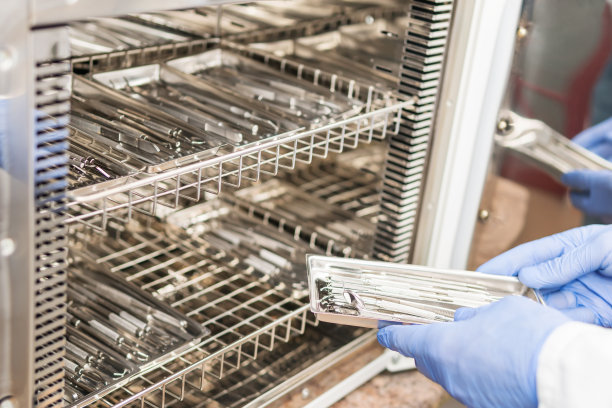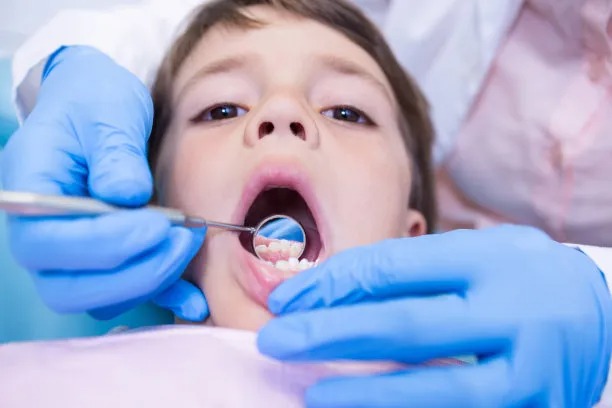Summary: Dental fillings are essential for addressing cavities and restoring oral health. Ensuring a successful filling procedure involves understanding the role of prevention and aftercare in maintaining both the fillings integrity and overall oral health recovery. This article explores crucial precautions before and after receiving a dental filling. Key aspects include choosing the right dentist, preparing for the procedure, following aftercare instructions, and maintaining regular dental check-ups. By following these guidelines, patients can help ensure not only the success of their dental fillings but also promote optimal healing and long-term oral health.
1. Selecting the Right Dentist for Fillings

Choosing an experienced and skilled dentist is paramount for successful dental fillings. A recommendation from friends, family, or even online reviews can guide you toward professionals with a proven track record. Look for a dentist certified by relevant dental associations, as this indicates adherence to high standards of care.
Moreover, consider the dentists communication style. You should feel comfortable asking questions about the procedure and expressing any concerns you may have. A good dentist will patiently explain the process, including the types of filling materials available, which can impact the longevity and esthetics of the filling.
Lastly, assess the dental clinic鈥檚 environment. A clean and well-equipped facility can enhance your overall experience and ensure that the procedure is conducted safely and hygienically.
2. Preparation Steps Before the Dental Filling
Preparation is key to a smooth dental filling procedure. Firstly, provide your dentist with a comprehensive medical history, including any medications you are currently taking or allergies you may have. This information helps the dentist customize the approach to your unique health needs.
It鈥檚 also advisable to avoid certain food and drinks before your appointment. Consuming meals or beverages close to the time of your filling may cause discomfort, particularly if local anesthesia is used. Therefore, it might be prudent to have a light meal and avoid beverages that are too hot or cold.
Additionally, consider arranging for someone to drive you home after the procedure, especially if sedatives are used. Having a companion ensures that you can rest comfortably after the appointment without worrying about traveling alone.
3. Following Aftercare Instructions Diligently
After receiving a dental filling, adhering to aftercare instructions is crucial for promoting healing and ensuring the longevity of the filling. Your dentist will likely recommend avoiding hard foods for a day or so to prevent putting undue stress on the new filling promptly following the procedure.
Moreover, it鈥檚 important to maintain excellent oral hygiene during the recovery period. Gently brushing your teeth and using an antibacterial mouthwash can help minimize the risk of infection around the filling site. Avoid brushing directly on the filling for a few days until your dentist confirms that it has settled properly.
Pay attention to any changes in the area surrounding the filling. If you experience persistent pain or swelling, contact your dentist immediately. Timely intervention can avert more severe issues that could arise from an improperly settled filling.
4. Regular Dental Check-Ups for Longevity
Even after a successful filling, regular dental check-ups are essential for maintaining optimal oral health. It is recommended to visit your dentist every six months for routine examinations and cleanings. These visits allow your dentist to monitor the integrity of your fillings and address any emerging concerns early.
During these check-ups, your dentist can also provide tailored recommendations for your oral hygiene routine, which is beneficial for both existing fillings and your overall dental health. They can identify areas that may require more attention, assisting you in preventing future dental issues.
Finally, staying abreast of advancements in dental technology can also benefit your oral health. Discussing new materials or techniques with your dentist may reveal options that better suit your individual needs, such as more durable filling materials or preventive treatments.
Summary:
In summary, ensuring the success of your dental filling involves selecting a qualified dentist, adequately preparing for the procedure, diligently following aftercare instructions, and committing to regular dental check-ups. Each of these steps plays a vital role in healing and maintaining optimal oral health.
This article is compiled by Vickong Dental and the content is for reference only.
Vickong Dental
Vickong Dental is a large medical group established in Hong Kong in 2008 by professors from well-known medical universities in Guangdong and Hong Kong, as well as medical doctors from key national '985' universities (including Master's supervisors and senior professors). The chain of branches brings together expert dentists with PhDs and Master's degrees from Hong Kong and Mainland China, committed to providing high-quality dental treatment.
"Vickong Dental Practices the University Motto of 'Healing and Serving Society,' with a Stable Operation for Sixteen Years. It Has Been honored with Hong Kong Enterprise Leaders's Choice,' and is a Global Trusted Implant Center for the Nobel Implant System. Recommended by Hong Kong Metro Broadcast and Guangdong Television, it Serves Customers from Over Thirty Countries and Regions, Gaining the Trust and Favor of Citizens from the Guangdong-Hong Kong-Macau Greater Bay Area and Surrounding Cities.

Thousands of customers' unanimous praise
The most recognized and highly recommended dental service by customers in the Guangdong-Hong Kong-Macau Greater Bay Area
We Ensure You Receive Detailed Care and Attention Here
Hong Kong standards, Shenzhen prices, Your Trusted English-speaking dentists

Vickong Dental Medical-Grade Instrument Disinfection Process
Vickong Dental Medical-Grade Instrument Disinfection Process

Vickong Dental Chain: A Warm and Comfortable Environment for Treatment






Appointment Hours

Q&A
Why choose Vickong Dental?
Vickong Dental practices the university motto 「Medicine to Benefit Society」, with each branch bringing together highly qualified dentists with doctoral and master’s degrees from Hong Kong and the Mainland, and has maintained seventeen years of steady operation。Recipient of 「2024 Hong Kong Enterprise Leaders Brand」, 「2025 Hong Kong Enterprise Leaders Brand」, a Nobel Biocare Global Trusted Implant Center, and a brand recommended by Metro Radio Hong Kong and Guangdong TV。
To date, we have served customers from more than thirty countries and regions,earning exceptionally high word-of-mouth recognition and trusted recommendations from residents across the Guangdong-Hong Kong-Macao Greater Bay Area and surrounding cities
We have eight major branches in Zhuhai、Shenzhen,and a consultation and service assurance center in Hong Kong,so you can book a free consultation at any time for any questions,which is very reassuring.
If I do not accept the quotation after the CT scan, will I be charged??
No! As long as the actual treatment has not started, you will not be charged any fees.
Will there be any additional charges during the treatment process?
No, there won’t be any additional charges. Before treatment begins, we will clearly explain the treatment plan and its corresponding fees. Only after the patient agrees and signs the consent form will we proceed with the dental service.
Can I pay in Hong Kong dollars?
Yes. Vickong Dental accepts payment in Hong Kong dollars. The amount will be converted based on the exchange rate of the day, and the applicable rate will be clearly communicated to you in advance.
Can I reschedule my appointment at any time?
Yes. Please contact us via **WeChat** or **WhatsApp** as early as possible, providing your original appointment time and details, along with your preferred new date and time slot for rescheduling.













